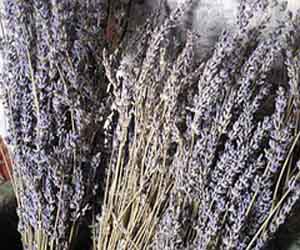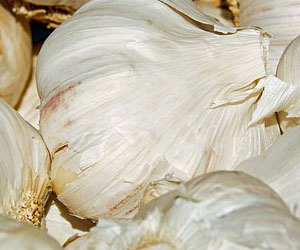


Nurturing The Body And Mind

In a world that often seeks quick fixes and pharmaceutical solutions, the holistic approach to healing with botanicals stands as a testament to the power of nature in promoting well-being. Holistic healing acknowledges the interconnectedness of the body, mind, and spirit, and botanicals, with their diverse array of compounds and healing properties, play a central role in this ancient practice.
Understanding Holistic Healing
Holistic healing is a comprehensive approach to health and wellness. It goes beyond addressing physical symptoms and delves into the root causes of ailments, including mental and emotional aspects. The essence of holistic healing lies in balance, and botanicals provide a diverse toolkit to help individuals achieve that balance naturally.
The Power Of Botanicals
Botanicals, or plants, have been used for centuries in traditional healing practices. These plants offer a rich source of natural compounds with various therapeutic properties. Holistic healing with botanicals involves using plants in multiple forms, including teas, tinctures, essential oils, and herbal supplements. Here are some key botanicals commonly employed in holistic healing:
Turmeric: Known for its potent anti-inflammatory and antioxidant properties, turmeric can alleviate conditions related to inflammation, such as arthritis and digestive issues.
Ginger: Ginger's soothing effects on the digestive system and its anti-nausea properties make it a staple in holistic healing.
Echinacea: Echinacea is often used to strengthen the immune system and ward off colds and infections.
Peppermint: Peppermint is renowned for its ability to soothe headaches, improve digestion, and calm the mind.
Lavender: Lavender essential oil is cherished for its calming effects, helping to reduce stress, anxiety, and improve sleep.
Valerian Root: Valerian root is used to treat insomnia, anxiety, and nervousness, promoting a sense of tranquility.
Chamomile: Chamomile's gentle qualities make it an excellent choice for reducing stress and promoting relaxation.
Balancing The Body And Mind
Holistic healing with botanicals aims to create a sense of equilibrium within the body and mind. It's not just about treating symptoms but addressing the underlying causes, which can often be stress, emotional turmoil, or imbalances in the body. By considering the person as a whole, holistic healing seeks to improve not only physical health but emotional and mental well-being as well.
Safety And Guidance
When delving into holistic healing with botanicals, it's crucial to seek guidance from a trained herbalist or healthcare practitioner. The effectiveness and safety of botanicals can vary from person to person, and potential interactions with medications must be considered. Safety and moderation are key principles of holistic healing.
Holistic healing with botanicals offers a profound and time-tested approach to well-being. By addressing the body and mind as a unified whole, and harnessing the power of nature's remedies, individuals can find balance, reduce stress, and achieve optimal health. Embracing the wisdom of holistic healing is an affirmation of the body's natural ability to heal itself when provided with the right tools from the natural world.
Nature's Path To Balance
 One of the primary ways essential oils contribute to well-being is by addressing physical health. Oils like lavender, tea tree, and eucalyptus are celebrated for their abilities to promote relaxation, relieve pain, and boost immune function. Lavender, in particular, is renowned for its calming properties, making it effective for reducing stress and improving sleep quality. Whether used in massages, baths, or topical applications, essential oils can significantly impact physical well-being.
One of the primary ways essential oils contribute to well-being is by addressing physical health. Oils like lavender, tea tree, and eucalyptus are celebrated for their abilities to promote relaxation, relieve pain, and boost immune function. Lavender, in particular, is renowned for its calming properties, making it effective for reducing stress and improving sleep quality. Whether used in massages, baths, or topical applications, essential oils can significantly impact physical well-being.
Emotional Well-Being
Our emotional health plays a critical role in our overall well-being, and essential oils have proven to be effective in addressing emotional states. Scents like citrus, chamomile, and rose can uplift spirits, reduce anxiety, and foster emotional balance. By incorporating these oils into daily routines or through aromatherapy, individuals can enhance their emotional well-being and find relief from the stresses of modern life.
Mental Well-Being
Cognitive health is another dimension of well-being that is closely connected to essential oils. Certain oils, such as peppermint and rosemary, are known for their ability to enhance mental clarity, reduce stress, and improve concentration. Diffusing these oils in work or study spaces can create a mental environment conducive to well-being.


Unleashing The Power Of Cooking Hacks
 1. The Freezer Is Your Ally
1. The Freezer Is Your Ally
Your freezer can be a valuable tool in saving time and reducing food waste. Here are some hacks related to the freezer:
Pre-Chop And Freeze: When you have an excess of fresh herbs or vegetables, chop them up and freeze them in ice cube trays with a little water. This way, you always have prepped ingredients on hand for your recipes.
Make Frozen Herb Butter: Mix chopped herbs with softened butter, roll it into a log using parchment paper, and freeze. Slice off portions to use as needed, adding a burst of flavor to your dishes.
2. Citrus Zest Enhancement
To enhance the flavor of your recipes with citrus zest, consider these hacks:
Pre-Zest And Store: Zest your citrus fruits before you use them, and store the zest in an airtight container in the freezer. It retains its freshness and can be used straight from the freezer.
Zest In Ice Cubes: You can also freeze zest in ice cube trays with a small amount of water. Then, simply pop out a cube when needed.
3. Faster Fruit Ripening
Do you need to ripen your fruits quickly? Try this hack:
Ripen In A Paper Bag: Place unripe fruits like avocados or bananas in a paper bag and fold it closed. The ethylene gas they produce will speed up the ripening process.
4. Masterful Microwave Cooking
Your microwave isn't just for reheating leftovers. Use it to simplify your cooking in these ways:
Nurturing Mind, Body, And Soul For A Balanced Life
 Key Components Of Holistic Wellness
Key Components Of Holistic Wellness
Physical Health: This includes aspects such as nutrition, exercise, sleep, and managing chronic conditions. A balanced diet, regular physical activity, and proper rest are fundamental to physical well-being.
Mental Health: Mental wellness involves emotional stability, resilience, and a positive mindset. It encompasses managing stress, nurturing creativity, and fostering a sense of purpose.
Emotional Health: Emotional well-being relates to understanding and managing one's emotions. It involves recognizing and expressing feelings, as well as developing strategies to handle emotional challenges.
Spiritual Health: Spiritual wellness isn't necessarily tied to religion; it's about finding a sense of purpose, meaning, and connection to something greater than ourselves. This can involve self-reflection, mindfulness, or meditation.
Social Connections: Building and maintaining meaningful relationships with friends, family, and the community is a key component of holistic wellness. A strong support system contributes to happiness and provides a safety net during difficult times.
Environmental Wellness: This focuses on our relationship with the environment, emphasizing the importance of a clean, safe, and sustainable living space.
Cultivating Holistic Wellness
Mindful Living: Practice mindfulness by being fully present in the moment. This involves paying attention to your thoughts, feelings, and physical sensations. Mindful living can help reduce stress and enhance emotional and mental well-being.
Balanced Diet: Consume a variety of nutrient-dense foods, emphasizing fruits, vegetables, lean proteins, whole grains, and healthy fats. Minimize processed foods and added sugars.
 3. Problem-Solving Skills: Developing problem-solving skills can help you approach stressors with a proactive mindset. Break problems down into smaller, manageable steps and focus on finding practical solutions. This approach can reduce the feeling of helplessness and anxiety.
3. Problem-Solving Skills: Developing problem-solving skills can help you approach stressors with a proactive mindset. Break problems down into smaller, manageable steps and focus on finding practical solutions. This approach can reduce the feeling of helplessness and anxiety.
4. Social Support: Talking to friends, family members, or a trusted colleague can provide emotional support and a different perspective on your stressors. Sharing your feelings and concerns can alleviate the emotional burden and provide valuable insights.
5. Physical Activity: Exercise has a powerful stress-reducing effect. It releases endorphins, the body's natural mood lifters, and can help you blow off steam. Even a short walk or a quick workout can have a positive impact on your stress levels.
6. Healthy Lifestyle Choices: Eating a balanced diet, getting enough sleep, and limiting caffeine and alcohol intake can significantly affect your ability to handle stress. A healthy body is better equipped to cope with life's challenges.
7. Time For Self-Care: Prioritize self-care activities, such as taking a warm bath, reading a book, or pursuing a hobby. These activities provide an opportunity to unwind and relax.
8. Acceptance And Perspective: Accept that not everything is within your control. Practice acceptance of situations that cannot be changed, and focus on what you can control. Maintaining a positive perspective can make stressors seem more manageable.
Nurturing Natural Defenses
 Herbal Medicine And Immune Support
Herbal Medicine And Immune Support
Herbal medicine, also known as phytotherapy, involves the use of plants and plant-based compounds to prevent and treat various health conditions. Many herbs are valued for their potential to modulate the immune system, enhancing its capacity to defend the body against infections and diseases.
Immune-Boosting Herbs
Several herbs have gained recognition for their immune-boosting properties. Some of the most notable include:
Echinacea (Echinacea Purpurea): Echinacea is renowned for its potential to stimulate the immune system, making it a popular choice for preventing and treating colds and upper respiratory infections.
Astragalus (Astragalus Membranaceus): Astragalus is an adaptogen that can enhance the body's resistance to stress, boost the immune system, and support overall vitality.
Garlic (Allium Sativum): Garlic is celebrated for its antimicrobial properties and its ability to stimulate the immune response. It has been used to ward off infections and promote overall health.
Ginseng (Panax Ginseng): Ginseng is an adaptogenic herb that can improve the body's ability to handle stress and support the immune system's response to infections.
Turmeric (Curcuma Longa): Curcumin, the active compound in turmeric, possesses potent anti-inflammatory and antioxidant properties. It may help regulate the immune response and reduce inflammation.
Medicinal Mushrooms (e.g., Reishi, Shiitake, Maitake): Certain medicinal mushrooms have immunomodulatory effects and are used to enhance the body's defense mechanisms.
The Science Of Herbal Immune Support
Modern scientific research has delved into the mechanisms by which herbal remedies influence the immune system. For example, Echinacea is believed to stimulate the production of white blood cells, while astragalus can enhance the activity of immune cells such as macrophages and natural killer cells. These studies help provide a scientific basis for the use of herbal medicine in immune support.
Safety And Consultation
While herbal remedies can offer valuable support for the immune system, it's essential to use them responsibly. Herbal preparations should be selected and used under the guidance of a knowledgeable healthcare practitioner, especially if you have underlying health conditions or are taking medications.